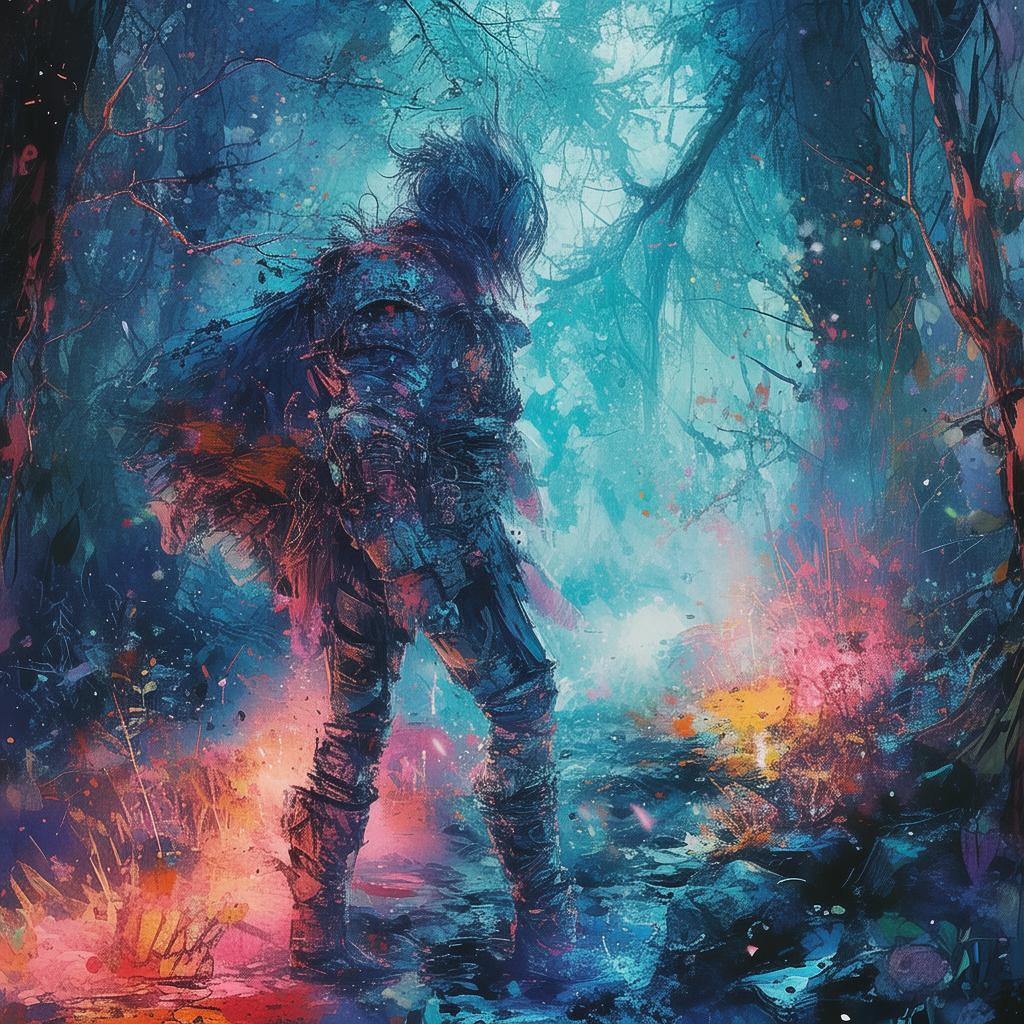The Enchanted Tea Leaves: A Pu'erha Mystery
In the heart of Pu'erha, nestled between rolling hills and misty mountains, there lay a quaint village named Longjing. The villagers were known for their love of tea, and their most prized possession was a centuries-old tea tree that stood at the center of the village square. The leaves from this tree were said to possess mystical properties, and the secret of its cultivation was passed down through generations.
The story began with a young girl named Mei, who was known for her lively spirit and her insatiable curiosity. Mei had always been fascinated by the tea leaves, and she often spent her days watching the villagers carefully as they tended to the tree. One day, while the village elder was away, Mei noticed a peculiar symbol carved into the trunk of the tree. It was a symbol she had never seen before, and it seemed to pulse with a faint light.
Curiosity piqued, Mei decided to investigate. She followed the trail of the symbol, which led her to a hidden cave behind the tea tree. Inside the cave, she found a chest filled with ancient scrolls and a small, ornate box. The box was locked, and Mei knew that the key to opening it was hidden somewhere in the village.
As Mei searched for the key, she stumbled upon a series of comical and mysterious events. The first was with the village blacksmith, who had a habit of disappearing for days at a time. Mei found him in a corner of the village, covered in soot and grinning from ear to ear. "I've found the key!" he exclaimed, holding up a large, rusted hammer. "It's been in my possession all along!"
With the hammer in hand, Mei returned to the cave and opened the box. Inside, she found a scroll that told the tale of the tea leaves' magical properties. According to the scroll, the leaves could grant the drinker extraordinary powers, but only if they were brewed with the purest water and under the light of the full moon.
The news of the magical tea leaves spread quickly through the village, and soon everyone was eager to try them. However, the process was not as simple as it seemed. The purest water was to be found in a hidden spring, and the full moon was only visible on a rare night of the year.
The villagers set out on a quest to find the spring and wait for the full moon. During their journey, they encountered a variety of obstacles, from mischievous monkeys to treacherous paths. Each challenge brought them closer together, and their camaraderie grew stronger.
On the night of the full moon, the villagers gathered around the tea tree, each carrying a cup of water from the spring. They brewed the tea and watched as the leaves transformed, glowing with an ethereal light. As they sipped the tea, they felt a surge of energy and clarity.
But the powers of the tea were not without their consequences. The villagers began to experience vivid dreams, filled with strange visions and cryptic messages. Some dreams were pleasant, while others were nightmarish, leaving the villagers questioning the true nature of the tea leaves' magic.
As the days passed, the dreams grew more intense, and the villagers became increasingly divided. Some believed the tea was a gift from the heavens, while others feared it was a curse. The village elder, who had returned just in time to witness the brewing of the tea, decided to investigate the source of the dreams.
The elder discovered that the scroll Mei had found was incomplete. The last part of the legend spoke of a hidden truth that could either save or destroy the village. The elder and Mei embarked on a quest to uncover the truth, leading them to an ancient temple deep within the mountains.
Inside the temple, they found a final scroll that revealed the true nature of the tea leaves. The leaves were not a gift from the heavens, but a warning from the ancient spirits of Pu'erha. The spirits had chosen the tea tree as a symbol of balance, and the villagers had disrupted that balance by seeking the tea's powers.

The elder and Mei returned to the village, and the villagers gathered to hear their findings. The elder explained that the tea leaves were a reminder of the importance of harmony and respect for nature. He urged the villagers to return to their simple ways, to honor the spirits, and to live in balance with the world around them.
The villagers listened, and with a newfound understanding, they began to rebuild their lives. They tended to the tea tree with care, and the dreams of the tea's magical powers slowly faded away. The village of Longjing returned to its peaceful ways, and the legend of the enchanted tea leaves became a tale of caution and wisdom, passed down through generations.
In the end, Mei realized that the true magic of the tea leaves was not in their power, but in the lessons they taught the villagers. The story of the enchanted tea leaves became a reminder that the greatest magic lies in the connections we make, the lessons we learn, and the balance we strive to maintain.
✨ Original Statement ✨
All articles published on this website (including but not limited to text, images, videos, and other content) are original or authorized for reposting and are protected by relevant laws. Without the explicit written permission of this website, no individual or organization may copy, modify, repost, or use the content for commercial purposes.
If you need to quote or cooperate, please contact this site for authorization. We reserve the right to pursue legal responsibility for any unauthorized use.
Hereby declared.









